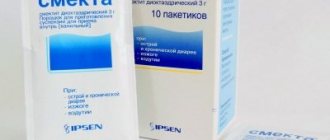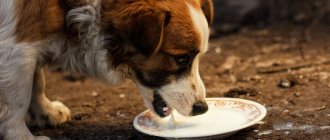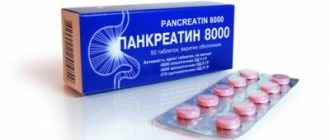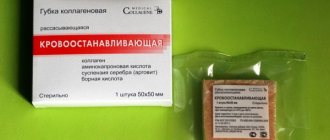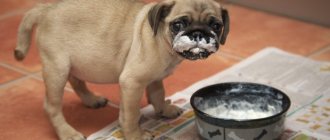Content
1. General description 2. Composition and action 3. Why Loperamide is dangerous 4. Purpose 5. Dosage 6. Contraindications 7. Side effects 8. Analogues and price 9. Reviews
Loperamide is a medicine and a substance of the same name that has antidiarrheal properties. In medical practice, medications containing loperamide are used for the symptomatic treatment of acute and chronic diarrhea, regardless of what causes it. But can dogs be given Loperamide? Here the opinions of experts differ.
Imodium for dogs: information on use
When your beloved pet gets sick, the whole family worries. The causes of diarrhea in an animal can be completely different, from harmless poisoning to more serious problems with the digestive system and even cancer.
The manifestations of this disease cannot be ignored, but the treatment of diarrhea must be correct, otherwise it can only cause harm.
What can cause this disease, and how to cure diarrhea in a pet?
Main symptoms of the disease
Diarrhea manifests itself in dogs in different ways; the symptoms are affected by the advanced stage of the disease. You should pay attention to your pet's health if:
- the animal's stool has changed: it has become softer or more liquid,
- pungent, strong odor, and watery feces with blood,
- animal waste products have changed color: they can be green, black, yellow,
- if your pet experiences pain during bowel movements, this may manifest itself through whining or moaning,
- the process of defecation has become more frequent,
- defecation is frequent, but the amount of feces is very small,
- if mucus appears in waste products, this is a sure sign of gastric diseases,
- if the animal behaves unusually for you: the dog has become lethargic or restless, often whines, or
- you notice that the animal is suffering,
- frequent vomiting or nausea in the dog,
- high body temperature,
- You may notice some gurgling in your pet’s stomach.
With diarrhea, symptoms can appear either one at a time or several at once. If from this list you only notice that your animal is unwell, it is better to contact a veterinarian.
Loperamide for dogs
If your pet has diarrhea, it is necessary to destroy the source of infection, relieve pain, calm and relax the walls of the large intestine. Loperamide, used by many dog owners, copes well with this. This medicine is used in a volume of 0.2 mg per kilogram of animal weight. Loperamide (Imodium) is not advisable for the treatment of diarrhea in small breeds weighing less than 10 kg.
This drug is perceived ambiguously by many doctors, since with diarrhea it tends to cause bleeding and poisoning, so it is not recommended to give it to a pregnant or lactating dog.
Causes of the disease
Knowing the possible causes of diarrhea in an animal, you can avoid it, or identify it at an early stage. Common causes of diarrhea in dogs:
- Changes in diet.
- Eating food that is not suitable for your pet or has been spoiled.
- The pet's body has been infected by pathogenic microorganisms.
- A foreign object is in the animal's digestive tract.
- The animal suffers from chronic diseases, such as kidney failure, liver or spleen diseases.
- Frequent culprits of diarrhea in dogs are parasites.
- Poisoning with chemicals or other harmful substances.
- Dysbacteriosis.
- Problems in the functioning of the intestines and pancreas.
- A product was consumed to which the animal had an allergic reaction.
- Indigestion.
- The gastric mucosa was damaged by foreign objects.
- The dog does not have enough gastric juice.
- The body lacks vitamins and minerals.
- Infectious diseases in dogs.
- Cancer of the stomach and digestive system. It appears more often in older animals.
You should choose a treatment method only after finding out the cause of the disease. This makes it possible to choose the most effective treatment method and guarantees a quick recovery for your pet.
What is this
Diarrhea or diarrhea is the systematic defecation of liquid feces. The pathological condition is provoked in animals by inflammatory processes that develop in the small intestine. Trouble can arise as a result of damage to the body by viral, bacterial, fungal or parasitic infections.
Veterinarians are faced with a problem. Owners cannot always immediately figure out what medicine to give their dog for diarrhea.
A negative state can be observed throughout the day. In the most dangerous situations, diarrhea can continue in an animal for several weeks. In the first case, there is no reason to worry.
If the problem cannot be dealt with for a long time, you need to understand what to give your dog for diarrhea. The choice of help for your pet depends on the general condition of the animal, the structure of the stool, and its shade.
What medications help treat diarrhea in a dog?
As soon as you notice the first signs of diarrhea in your dog, it is recommended to immediately take the sick pet to the doctor. Once the cause of diarrhea has been determined, the veterinarian will prescribe medication, which may include:
- Regidron is a powder drug that is diluted with water and given to the dog in a diluted form. To make the animal drink the medicine on its own, you can add a little sugar.
- Glucose is prescribed for dogs if the animal is dehydrated.
- Antibiotics are prescribed to a dog if the cause of the disorder is an infectious disease.
- The veterinarian prescribes anti-inflammatory drugs if there is an increased body temperature and blood in the discharge.
- For any manifestation of diarrhea, first of all, even for prevention, it is necessary to give the dog an antiparasitic drug.
In what cases should you contact a veterinarian?
It is necessary to take your dog to the clinic if diarrhea does not stop for several days. A cause for alarm is the accompaniment of a negative state by frequent vomiting and the refusal of the four-legged friend to eat and drink. You should seek help from a veterinarian if there is a sharp decrease in the dog’s weight, the presence of feces of an atypical color, or a significant increase in temperature.
What can you give your dog for diarrhea?
But what can you give a dog if it is not possible to urgently take it to a doctor? Some tablets can help get rid of diarrhea, but it is still better not to refuse consultation with a veterinarian.
Enterofuril
This drug works well against mild forms of diarrhea and is successfully used by many dog breeders. This remedy is great as an emergency measure.
The medicine is available in two forms: suspension and capsules. The course of treatment lasts three days, and the correct dosage must be maintained. The capsules are given to the dog three times a day, 2 pieces (100 mg).
The liquid product is taken into a syringe, 1 cube, and given to the pet to drink.
Source: https://SpaceDogsTV.ru/drugoe/furazolidon-sobake-pri-ponose-2.html
Composition and action
Loperamide is an antidiarrheal drug containing the substance of the same name as an active ingredient. The medication belongs to opioid drugs that are used in medical practice to treat intestinal disorders caused by gastroenteritis and inflammatory diseases of the gastrointestinal tract.
The active ingredient loperamide is included in many popular medications, including Imodium, Loperamide, Lopedium, Diara. Once in the body, it slows down intestinal motility, thereby increasing the transit time of feces. Loperamide increases the tone of the anal sphincter and helps retain intestinal contents. The frequency of the urge to defecate is reduced.
Important!
Loperamide acts quickly and retains its therapeutic properties for 4-6 hours.
Loperamide can be found in almost every home medicine cabinet, so it is not surprising that when their pets have upset bowel movements, owners rush to provide them with first aid. However, not all medications that work well in helping people fight disease are effective and safe for pets. Loperamide is one of those medications that should not be used uncontrollably. The drug has many contraindications, has toxic properties, and is strictly prohibited for puppies.
Application of Loperamide in veterinary medicine
Loperamide is an antidiarrheal drug that is part of complex therapy for diarrhea of various etiologies. The medicine contains 2 mg of loperamide hydrochloride as an active ingredient. The medicine is available in the form of white, round tablets with a flat surface.
Loperamide hydrochloride, penetrating the organs of the digestive tract, interacts with the longitudinal and circular muscles of the walls of the small intestine. Reduces intestinal motility and increases the transit time of stool. Increases the tone of the anus, which allows you to hold back stool and significantly reduce the number of urges to defecate. Helps restore the process of sorption of liquid and electrolytes.
Due to this, it has an antidiarrheal effect in a short time, therefore in veterinary medicine it is used as part of complex therapy for the treatment of diarrhea of various etiologies in domestic animals.
Why is Loperamide dangerous?
The drug suppresses the hypersensitivity of the large intestine. It performs analgesic and sedative functions. At the same time, it relieves pain, and does not suppress inflammatory processes in the intestines. The picture of the disease is blurred - Loperamide and drugs based on the substance of the same name do not cure, but only aggravate the situation.
Important!
Veterinarians recommend using Loperamide only for the treatment of colitis; the drug will not be beneficial for diarrhea.
What is the danger of the drug? Diarrhea is not an independent disease, not a diagnosis. This is the body’s protective reaction to an excess amount of harmful bacteria in the intestines. Since the drug slows down intestinal motility, toxic substances accumulate in the body and enter the blood.
Important!
Taking Loperamide for diarrhea in dogs can cause gastrointestinal bleeding and intoxication of the body.
Diarrhea in a dog: how to help your pet overcome a delicate problem?
When it starts suddenly, this delicate problem can debilitate the dog for up to three weeks. “Dog” diarrhea often has a trivial cause: say, the dog got greedy at dinner. Or it could be a signal to the owner: the pet is seriously ill. How dangerous is the embarrassment that happened to your animal? Let's figure it out.
If your dog has diarrhea just once, then reproach him for his indiscriminate eating habits and strengthen control over your pet’s diet. Monitor the quality and quantity of food, and also stop picking it up from the ground while walking.
Diarrhea that continues for the second day is a signal to act. Loose stool in a puppy quickly dehydrates the fragile body. The danger of dehydration and, in the future, acid-base imbalance also threatens adults.
You can only understand what to give your dog for diarrhea by finding out the cause.
Look for it in the list:
- spoiled food;
- food poisoning;
- binge eating;
- pieces of bones;
- infection;
- unsuitable food (when one or more ingredients are allergens for the dog);
- stress;
- physical illnesses.
Diseases that can cause diarrhea
Diarrhea in a dog can occur:
- If the dog suffers from an invasive disease, i.e. one of the diseases caused by parasites. It is difficult to diagnose a parasitic disease in a dog at home.
- If, when the dog consumed contaminated food or water, the animal’s body was affected by bacterial toxins.
- If the animal’s body is affected by infections of adenovirus, rotavirosis, coronavirus, parvovirus.
- If the cause of the dog’s illness is a fungal infection (for example, trichomoniasis).
- If the animal develops dysbiosis as a result of taking the tablets.
- If the tablets that need to be given to the dog irritate the gastric mucosa.
Less common causes of canine diarrhea include:
- tumors of the abdominal organs;
- some liver and kidney diseases;
- intussusception;
- hemorrhagic gastroenteritis (with bloody diarrhea);
- pancreatitis.
Diagnosing diarrhea
| Chair | Causes | What to do? |
| Softer than normal | Associated with eating disorders (when the dog is given food from the table at home). | Monitor your pet at home. If the dog is no longer fed from the table, and the stool remains soft, then the cause may be an intestinal infection. |
| Yellow color | At home, the dog is accustomed to giving butter, fatty meat and cottage cheese. | You should not feed your animal fatty foods. If you can’t cope with the problem at home after taking control of your diet, you need to contact your veterinarian to be examined for pancreatitis. |
| Black color | A dog's stool turns black as a result of a change in diet or medication. Black stool is also a symptom of internal bleeding. | It is better not to draw independent conclusions, even if they seem obviously related to the transition to a new type of food. The worst cause is so serious that a veterinarian must be contacted for treatment. |
| Diarrhea | Stress or infection. | If this happened once, then you can watch the dog at home. Treatment in this case will be rest of the pet, attention, and proper care. If it recurs the next day, then treatment at home cannot be carried out. Most likely, diarrhea is a symptom of a dog being infected with a parasitic or parvovirus infection. |
| Green with slime | An infection caused by parvovirus or parasites. | Treatment of stool with mucus cannot be done at home. This should be done under the supervision of a veterinary clinic specialist. |
| With worms | Parasitic infection in advanced form. | Treatment is prescribed by a specialist. |
| With blood | Injury to the dog’s gastrointestinal tract by foreign objects and tumors. | Treatment at home is excluded. |
Treatment
So, the reason has been established. What to do next? No matter how the treatment is carried out - at home or under the supervision of a veterinarian, the first thing to do is to administer subcutaneous infusions with saline and glucose, and avoid excessive watering. In the first day after the onset of the disease, you don’t have to feed her. While the laboratory prepares tests, the dog is given symptomatic treatment.
So, to normalize and maintain a normal acid-base balance, infusion therapy is prescribed. They also give medications to protect the mucous membrane of the dog’s gastrointestinal tract. If a dog has bloody diarrhea, it is prescribed antibiotics.
You can feed on the second day after the onset of the disease. You can give low-fat cottage cheese, boiled lean meat. To stop diarrhea, you can give your dog rice water.
In particularly severe cases, diarrhea cannot be stopped for about a month, so it is especially important to prevent dehydration of the animal’s body.
Medications
A veterinarian prescribes specific treatment. Why? – Although most often the prognosis for diarrhea in dogs is favorable, there are difficult cases when the pet’s life is at stake.
How to treat diarrhea in a dog as part of symptomatic treatment?
The following drugs can be used:
- Lactobifadol - to normalize intestinal microflora;
- Papaverine (or no-shpa) - for pain relief, elimination of violent peristalsis, reduction of spasms;
- Loperamide - to suppress excessive sensitivity of the colon.
Once in the colon, loperamide has an analgesic and sedative effect. Loperamide relieves pain, but this drug should not be overestimated. After all, loperamide does not cope with the inflammatory process of housing and communal services.
Typically, loperamide is given to a dog for a week at a rate of 0.08-1.5 mg of loperamide per 1 kg of body weight. At the beginning of treatment, loperamide is given 4 times a day. As you recover, the dose and number of doses of loperamide are reduced.
If your dog has an obvious parasitic infection, why not treat it yourself? This will speed up the recovery process, and a specialist can be invited to examine the dog the next day.
For this you can use drugs such as:
- Stronghold;
- Profender;
- Prazitel;
- Prazicide;
- Milbemax;
- Kanikquantel;
- Drontal;
- Dironet;
- Cestal;
- Azinox.
Folk remedies
At home, in case of diarrhea, it is recommended to give the animal a decoction of oak bark, pomegranate peels, and infusions of blueberries and bird cherry. This drink has an anti-putrefactive, anti-inflammatory and astringent effect.
What else can you do at home to alleviate your dog’s condition? To remove toxins from the gastrointestinal tract, the dog is given activated charcoal at the rate of 1 tablet for every 10 kilograms of the pet’s weight.
When should you contact a veterinarian?
If your puppy has bloody diarrhea, or diarrhea is accompanied by sudden weight loss, loss of appetite, fever, and lethargy, you cannot do without qualified help. These are the symptoms that may indicate that your dog is infected with a dangerous infection.
Tests your veterinarian may order for diarrhea in dogs may include:
- X-ray of the abdominal cavity (this is how places of accumulation of gases and foreign bodies in housing and communal services are identified);
- Analysis of urine;
- blood test - general and biochemical;
- smear microscopy (this is how parasitic diseases are detected);
- Ultrasound of the abdominal organs;
- serological tests;
- endoscopy;
- cytological studies;
- bacterial culture (including to determine the degree of sensitivity of the dog’s body to antibiotics).
To avoid unpleasant procedures, you should feed your dog properly and conduct annual medical examinations of your pet. Proper care will help reduce the risk of dangerous diseases, one of the symptoms of which is diarrhea. Take care of the dogs!
Sorry, there are no surveys available at this time.
"Laboratory research in veterinary medicine"
Don't be afraid to have your pet examined at a veterinary clinic. This is not scary at all, and in many cases it is necessary!
Source: https://kykarek.com/sobaki/bolezni-i-lechenie/diareya-kak-pomoch-pitomtsu-11197/
Purpose
The drug helps eliminate pain and diarrhea, is prescribed in some cases for the treatment of colitis in dogs, and also as symptomatic therapy to normalize intestinal motility and stop diarrhea. It is strictly prohibited to use Loperamide for self-medication; the veterinarian chooses the most effective and safe drug only after establishing the cause of frequent and loose stools.
Diarrhea can be caused by:
- infectious diseases;
- nutritional errors - feeding low-quality or unsuitable products for the pet;
- a sudden change in feed (for example, a transition from natural food to industrial feed);
- chemical poisoning;
- allergic reactions;
- helminthiases;
- penetration of a foreign object into the intestine;
- vitamin deficiencies;
- chronic diseases of the gastrointestinal tract;
- mechanical injuries to the intestinal walls;
- oncological diseases.
An intestinal disorder is not just an unpleasant malfunction of the digestive system: prolonged diarrhea can lead to dehydration, which can lead to serious complications and can even be fatal. Mechanical injuries and foreign bodies in the intestines can cause internal bleeding and intoxication of the entire body, which will lead to the death of the animal if emergency measures are not taken.
Colitis is a serious disease, at the first signs of which you should not hesitate, but urgently take the animal to the veterinarian. Signs of colitis are:
- severe diarrhea, with stool that is black, tar-like and may contain blood;
- vomit;
- a sharp increase or, conversely, decrease in body temperature;
- lethargy;
- convulsions.
Is it possible to give Loperamide to dogs without a prescription?
Loperamide can be given to a dog only as prescribed by a veterinarian after the cause of the stool disorder has been established.
Using the drug according to standard instructions may lead to a worsening of the pet's condition. Uncontrolled use of the drug in some cases causes the development of allergies, vomiting and intestinal obstruction in the animal.
As a safe remedy for diarrhea, veterinarians recommend replacing Loperamide in dogs for diarrhea with activated charcoal or Smecta. These medications can be used before visiting a veterinary clinic.
Dosage
If the veterinarian has prescribed Loperamide, the single dose is calculated based on the amount of the active substance: 0.2 mg per 1 kg of animal weight. 1 tablet contains 2 mg of the active ingredient, which means that for dogs weighing 15 kg, a single dose will be 1.5 tablets.
The standard treatment regimen is 4 doses of the drug at the beginning of the therapeutic course; if there are positive dynamics, the veterinarian will reduce the dose and frequency of taking the medication.
Important!
Loperamide should not be given to dogs weighing less than 10 kg.
How to replace Loperamide for diarrhea in dogs
Most veterinarians speak negatively about Loperamide, considering it a dangerous drug that can lead to the death of the animal. Doctors recommend using special veterinary drugs against diarrhea, which include:
- EnteroZOO; Lignitin; Veracol; Diarkan.
Lignin is prescribed for inflammatory diseases of the gastrointestinal tract and liver, allergic reactions. Has antidiarrheal effect.
Veracol is used for enteritis and digestive disorders in animals accompanied by diarrhea.
Diarcan is an antibacterial drug that shows therapeutic effectiveness against infectious diarrhea caused by dysentery, salmonellosis, and enteritis.
As an alternative to specialized drugs, veterinarians allow the use of Smecta.
Before using any antidiarrheal drug, you should consult a specialist and, if necessary, undergo diagnostics to identify the etiology of diarrhea. Uncontrolled use of medications can lead to the death of your pet.
Imodium (loperamide) is a medication that can be used to treat dogs with diarrhea. It works by increasing the tone of the anal sphincter, reducing fecal incontinence and the urge to defecate. The drug acts directly on the intestinal wall to keep the absorption of water and electrolytes under control and prevent excessive waste from entering the digestive tract. When waste passes through the gastrointestinal tract too quickly, the intestines do not have enough time to properly absorb fluids, leading to watery stools.
This probiotic provides fast, effective relief from diarrhea and also improves overall digestion. To treat diarrhea, you can use the following medications: Imodium AD or EZ Chews, or Imodium Multi-Symptom Relief.
Side effects
It is very important to strictly follow the dosage recommended by veterinarians. Exceeding it can lead to serious consequences:
- intestinal obstruction;
- depression of the central nervous system, manifested by impaired coordination of movements;
- drowsiness;
- increasing muscle tone;
- respiratory impairment, etc.
Such symptoms require immediate contact with a veterinarian. In a veterinary clinic, the dog will undergo gastric lavage and be prescribed sorbents. If respiratory activity is impaired, the animal may require artificial ventilation.
Reviews
Owners
“Once upon a time, my Elizaveta (royal poodle breed) began to get very sick. It was night and there were no 24-hour pharmacies nearby. At home I only had Imodium for diarrhea. I gave her a pill.
Lord, I wish I hadn’t! How my beauty started to vomit! She felt so bad that I took a taxi and went to a nearby town to a 24-hour veterinary clinic! We spent a lot of money, of course, but we managed to save the baby.
She started bleeding (fortunately, not severely) in her intestine. I had to have surgery. It would be better to give her some coal and wait until morning. I will no longer give Imodium to any animals (I have another dog and three cats at home) and I don’t recommend it to anyone!”
“We had a female Pomeranian (dwarf) Spitz. Somehow she began to vomit violently. Then she went out to relieve herself. The stool turned out to be the consistency of water. I was afraid. I found Imodium at home. Well, I think the dog is small, I’ll give her half the tablet.
Gave. We didn't have time to save. Intestinal bleeding. I killed my beauty. If your pet’s life is valuable, it is better to consult a doctor for normal medications!”
Veterinarian
“Not only in ours, but also in other veterinary clinics, we veterinarians do not prescribe Imodium. It has long been proven that it only harms the dog (and the cat too). It is best to use regular smecta to help with diarrhea: it’s easier to give and has more benefit.
Then there is no need to save animals from bleeding and severe intoxication. Even if the animal has diarrhea, it is better to wait for the opportunity and consult a doctor for accurate diagnosis and proper treatment.”
Analogs and price
Loperamide tablets are sold in a regular pharmacy without a prescription; the cost of a package (10 pieces) is 50-70 rubles.
However, given the numerous restrictions on the use of the drug and the presence of side effects, veterinarians are trying to replace it with effective and more gentle medications. In particular, the following veterinary drugs are used for diarrhea:
| EnteroZoo | A gel with sorbing and detoxifying properties, which is prescribed for poisoning, bacterial and viral infections accompanied by frequent bowel movements, as well as gastrointestinal pathologies, imbalance of intestinal microflora, manifestations of an allergic reaction; |
| Diarkan | A medicine in the form of sugar cubes that quickly restores intestinal microflora, fights pathogens of bacterial infections, and normalizes stool. The drug is prescribed for poisoning, gastrointestinal bacterial infections; |
| Vetsorbin | A medicinal product that has a natural composition and has a wide spectrum of action. Prescribed for various problems of the digestive system associated with intestinal dysfunction. |
Medications can also be used to treat diarrhea in pets. Among the safe and acceptable for use in veterinary medicine:
- Activated carbon is a sorbent with detoxifying properties. Stops diarrhea, binds and removes toxic substances from the body;
- Enterosgel;
- Polysorb;
- Smecta.
However, these drugs can be given to animals only after consultation with a specialist.
Review of medications and drugs for diarrhea
Veterinary products
Drugs for veterinary use are usually prescribed and administered only by a doctor. But some of them can be bought at pet stores or veterinary pharmacies. I advise you to look for such medications and replenish your emergency first aid kit for animals with them.
EnteroZoo
Sorbent and detoxifier with a wide spectrum of action.
Available in the form of a suspension (gel). It is odorless and tasteless, so animals tolerate it well. The medicine is given in its pure form, along with food, or diluted with water and poured into the mouth from a syringe without a needle. EnteroZoo is an excellent cheap product. It is safe, costs up to 250 rubles and helps with a lot of diseases:
- poisoning, including severe poisoning: exposure to pesticides, heavy metal salts, pesticides, viral, bacterial and fungal infections;
- gastrointestinal pathologies;
- imbalance of intestinal microflora;
- allergies.
EnteroZoo is also used as a preventive measure. The product increases local immunity, removes toxins and does not affect the absorption of vitamins.
Diarkan
Diarcan is used for poisoning and gastrointestinal bacterial infections. Medicine in the form of sugar cubes (briquettes). Dogs eat them with pleasure. If your dog is picky, you can dissolve the cube in water and pour in the medicine from a syringe without a needle.
- sulfaginidine is an antibacterial substance that helps in the fight against salmonella, E. coli and similar pathogens;
- benzonaphthol is also an antibacterial component;
- Ratania extract – envelops the intestinal walls, thereby preventing the absorption of toxins and restoring the water-salt balance.
Diarcan is prohibited in case of individual intolerance to the components of the drug, severe liver and kidney diseases.
They sell Diarkan for 430-470 rubles.
Vetsorbin
Vetsorbin is a must-have in the first aid kit of every dog owner. This is a natural, safe remedy with a wide spectrum of action. I prescribe it for:
- transition from one diet to another as a preventive complex;
- indigestion, flatulence, fermentation and other minor intestinal disorders;
- poisoning;
- viral and bacterial infections of the gastrointestinal tract;
- intoxication with poisons, heavy metals, drugs;
- treatment of allergies;
- dysfunction of the liver and kidneys in combination with the main therapy.
- green clay – a natural adsorbent and electrolyte;
- crushed pomegranate – a tanning ingredient, enriches the body with vitamins and minerals;
- Blueberry powder is an anti-inflammatory and astringent component.
Costs 220-260 rubles per package of 60 tablets.
Antitox
A detoxifier used for poisoning of any etiology.
Antitox is also useful for toxicosis in pregnant bitches and stomach upsets caused by allergies. Antitox is produced in the form of a solution for injection - subcutaneous, intramuscular or intravenous. It is safe, does not cause side effects, and is hypoallergenic.
A 100 ml bottle costs about 600 rubles.
Human medications that can be given for diarrhea in dogs
It is better to give dogs veterinary medications - they are designed specifically for animals, and they indicate clear dosages based on the dog’s weight. But not every owner has them on hand. And stomach upsets also happen late at night, when pet stores, veterinary clinics and pharmacies are closed.
In this case, feel free to use one of the remedies below. It is easier to find and buy them, especially since there are 24-hour pharmacies for people.
Activated carbon
A safe adsorbent and detoxifier, everyone has it in their first aid kit.
Binds and removes toxins, stops diarrhea, and prevents the reabsorption of toxic substances. Use at the rate of 1 tablet per 10 kg. Give three times a day at regular intervals.
Activated charcoal can be given to puppies for diarrhea from 4 months of age, pregnant bitches and older dogs.
On average it costs 30 rubles. Its analogue with enhanced effect - White Coal - is sold for 220 rubles.
Polysorb
Enterosorbent from silicon dioxide.
It works many times better than activated carbon. But it also costs more: the price for a 12 g bottle is 120 rubles. Polysorb binds and removes toxins from the body. Indicated for food poisoning, intoxication caused by salts of heavy metals, poisons, bacterial and viral infections.
Give 0.1-0.2 g of the drug per 1 kg of animal weight per day. The powder is diluted in 50-100 ml of clean water.
Enterosgel
Another powerful sorbent, which is an organic silicon compound. Available in 2 forms:
- gel for preparing a solution, odorless and tasteless;
- ready-to-eat paste, contains sweeteners.
Enterosgel eliminates toxins, normalizes the functioning of the intestines, liver and kidneys. It envelops the mucous membranes of the stomach and intestines, which helps restore the lining, increase local immunity and, as a result, rapid recovery.
- puppies;
- pregnant and lactating dogs;
- animals with liver and kidney failure;
- in case of poisoning with acids, alkalis, cyanides, methanol, ethylene glycol.
Smecta
Sorbent based on aluminum and magnesium of natural origin.
Stops diarrhea, helps with food poisoning, intoxication with viruses and bacteria. Smecta powder is flavored with orange or vanilla flavor, which dogs do not like.
Used for adult dogs and puppies from 4 weeks. One sachet (3 g) is diluted in 100 ml of warm water and given in small sips.
A package of 10 sachets costs 150 rubles.
Atoxyl
Analogue of Polysorb. Also contains silicon dioxide, which:
- accelerates epithelization of mucous membranes;
- relieves detoxification symptoms;
- eliminates allergy symptoms;
- destroys germs and bacteria.
12 g of Atoxil are diluted in 250 ml of water. Drink from a syringe within 24 hours.
Sold for 150-170 rubles. per package of 20 sachets. One sachet contains 2 g of medication.
Polyphepan
A preparation based on hydrolytic lignin. Available in the form of water-insoluble powder, granules and tablets.
- adsorbs toxins;
- relieves signs of toxicity;
- accelerates the healing of the intestinal and gastric mucosa;
- normalizes the functioning of the gastrointestinal tract.
Powder or granules are given along with water at the rate of 0.5-1 g/kg per day. Anti-diarrhea tablets are fed 3-4 tablets 2-3 times a day.
Do not be afraid of an overdose: Polyphepan is not absorbed into the bloodstream or intestinal walls, and is excreted unchanged with feces.
Powder costs an average of 80 rubles, tablets – 170 rubles.
Phosphalugel
Medicine based on aluminum phosphate.
Available in gel form. This is a safe drug, but dogs do not like it because of the orange smell and taste. Phosphalugel is one of the best “human” drugs for dogs with diarrhea. He:
- adsorbs toxic substances;
- envelops the walls of the stomach and intestines with a protective coating;
- eliminates excess hydrochloric acid;
- accelerates regeneration;
- reduces fermentation and gas formation;
- normalizes peristalsis;
- maintains electrolyte balance.
1 sachet is diluted in 100 ml of water. The dog is given 1-2 sachets 2-3 times a day.
The average price is 25 rubles per 1 sachet.
Enterofuril
Enterofuril suspension and capsules contain the main active ingredient – nifuroxazide.
This is an antimicrobial drug used for intestinal disorders and poisoning. Nifuroxazide acts only locally and is not absorbed into the bloodstream. Therefore, it is well tolerated and does not cause side effects.
Give at the rate of 1 ml per 2.5 kg of weight. The maximum daily dose is 3 ml.
Costs from 220 rub. for capsules and from 300 rub. for the suspension. Its analogues - Stopdiar, Ersefuril, Ecofuril - are sold for 180-300 rubles.
Phthalazole
An excellent and cheap antibacterial agent - it costs about 20 rubles for a blister of 10 tablets.
Eliminates the colonization of harmful microorganisms, relieves inflammation, normalizes the functioning of the gastrointestinal tract. They are used along with sorbents: first they give the adsorbent, and after 1-2 hours - Fthalazol. Phthalazole is well tolerated by most pets. But allergic reactions are not excluded. The drug is prohibited for dogs with liver and kidney failure.
The dosage is calculated by weight: for small breeds - 0.3-0.5 g, for medium breeds - 0.5-1 g, for large breeds - 2 g. Give 2-3 times a day.
Complexes for intestinal restoration
During diarrhea and 1-2 weeks after it, it is advisable to give funds to maintain electrolyte balance and microflora, strengthening local immunity. Such medications will eliminate dehydration and exhaustion, restore normal bowel function and prevent relapses.
Diagel
A drug for removing toxins, restoring electrolyte balance and intestinal microflora.
Diagel will not stop diarrhea. It is given for stomach disorders as an additional remedy. In addition to this, you need to additionally feed the dog with sorbents. In addition to the main active ingredients, Diagel is enriched with B vitamins, nicotinic and pantothenic acid. This is a safe remedy; individual intolerance is only occasionally possible.
Lactoferon
Russian lactoferon is not a fixative.
This is a functional feed additive with probiotics and a phytocomplex of 13 medicinal herbs. But I recommend this drug:
- during recovery from diarrhea or constipation;
- during treatment with antibiotics;
- as an aid for gastrointestinal diseases;
- to strengthen the immune system.
Lactoferon will restore the intestinal microflora, strengthen defense mechanisms, and prevent repeated intestinal breakdowns. Don't be lazy to use this drug. Moreover, it is safe and costs a penny - 70-90 rubles.
Florentine
Latest generation probiotic. Contains:
- saprophytes – suppress pathogenic microbes;
- fructooligosaccharides – stimulate the colonization of beneficial bacteria;
- nicotinic acid – relieves inflammation, normalizes the functioning of the intestines, liver and pancreas;
- vitamin B complex – regulates metabolism, increases local immunity.
Florentin is prescribed to restore the digestive system after poisoning, taking antibiotics, and gastrointestinal diseases.
The medicine is produced in the form of tablets and gel, packaged in dispensing syringes. Costs 800-900 rubles.
Vetom 1.1
Feed additive for normalizing intestinal microflora and increasing local immunity. Contains modified "beneficial" bacteria.
- poisoning;
- intestinal disorders caused by diseases or medications;
- changing your diet.
Vetom 1.1 is available in powder form. It is mixed into the food or water of animals. Can be fed to puppies from the first day of life.
A 50 g package costs 150 rubles.
Regidron
"Human" drug.
Designed to maintain electrolyte and water balance during vomiting, diarrhea, and poisoning. Available in powder form. 2.4 g of the product is diluted in 100 ml of clean water and given in small sips at the rate of 50 ml per kg.
Costs about 400 rubles. per package of 20 sachets.
Narine
A probiotic for humans that can be given to dogs.
Contains acidophilus and bifidobacteria. Available in the form of tablets and powder, packaged in sachets. Can be mixed with food, but it is better to give half an hour before feeding.
I recommend using Narine before antibiotic therapy, after diarrhea and as a preventative measure.
This is the cheapest “human” probiotic. A package of 20 tablets or 10 sachets is sold for 200-300 rubles.
Prohibited and dangerous medications
Not all anti-diarrhea medications for people are suitable for dogs. These are antibiotics and drugs that slow down peristalsis and delay the release of toxins. In addition, such medications are harmful to the liver, pancreas, and kidneys.
Drugs that should not be given to animals:
- Loperamide;
- Linux;
- Furazalidone;
- Imodium;
- Trichopolum;
- Metronidazole;
- Furazalidone;
- Levomycetin.

